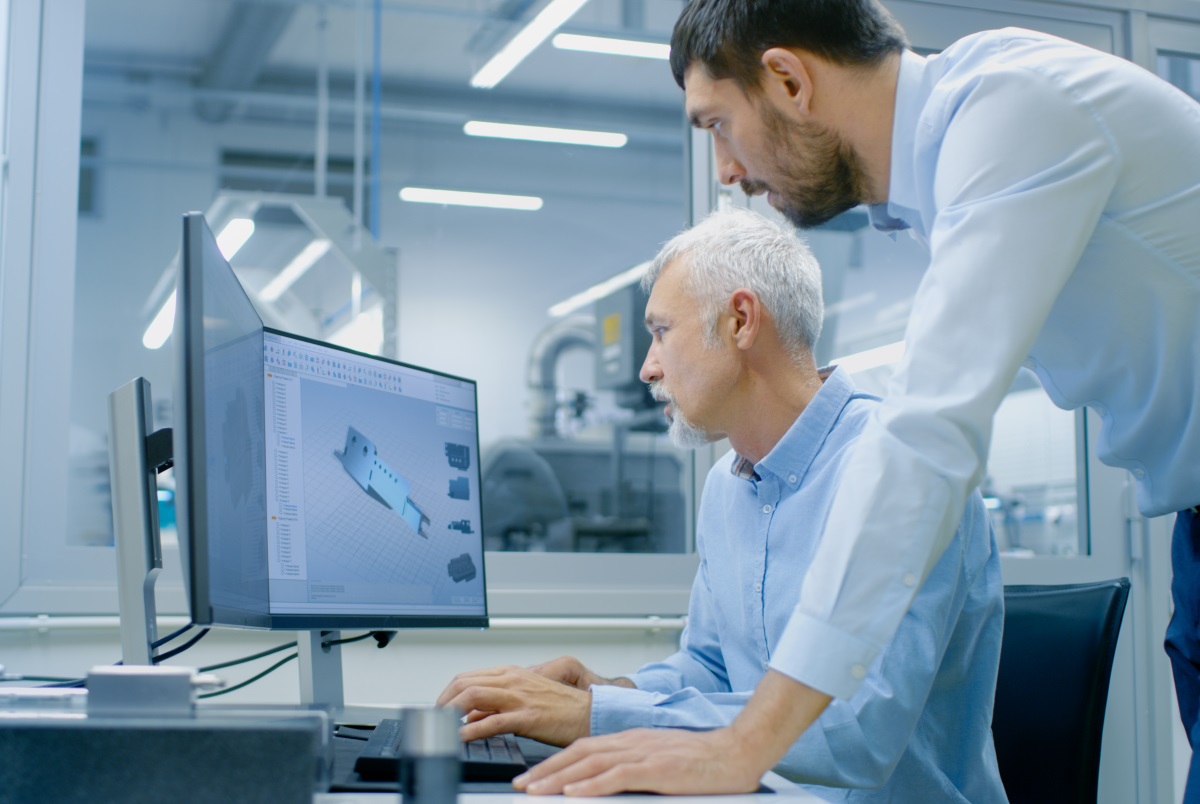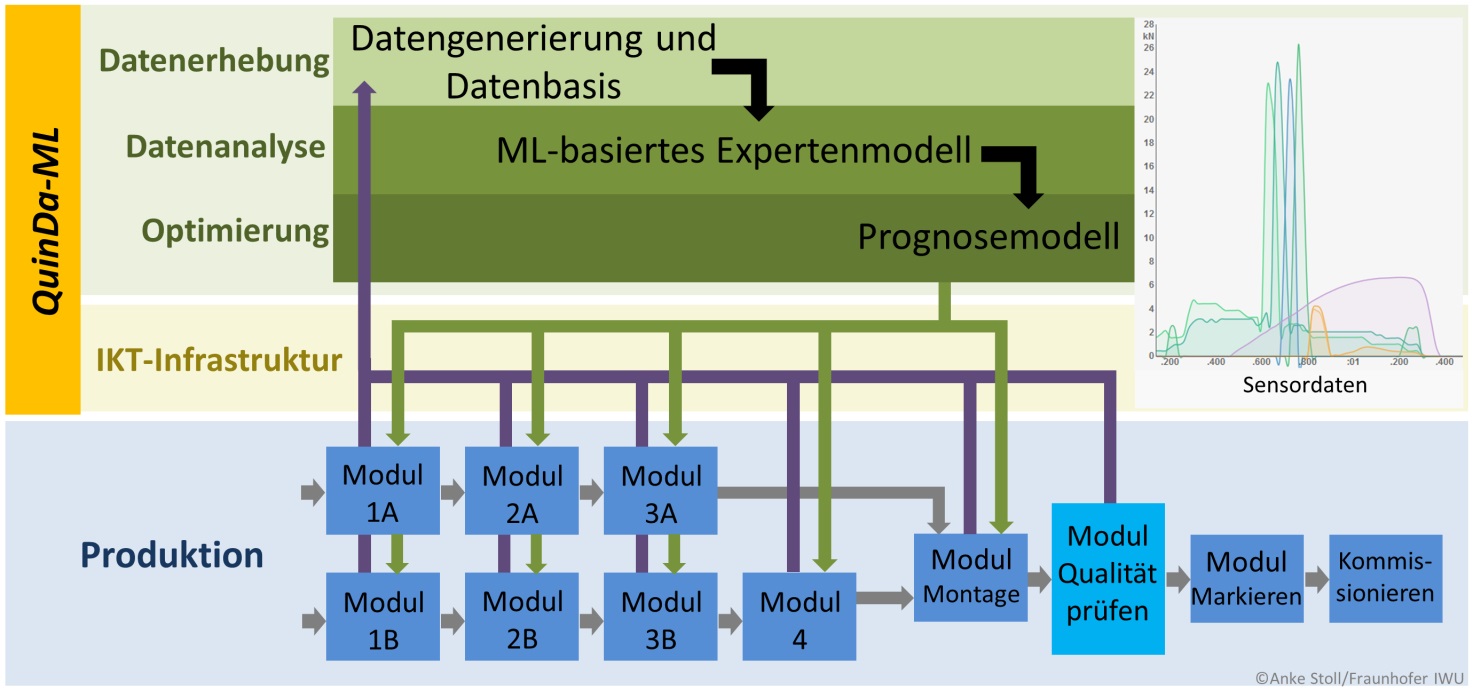Quality assurance in manufacturing plants
Industrial production is becoming ever faster and more complex. Ensuring consistently high quality at all times is a major challenge for companies in the manufacturing industry. In a funded project, the medium-sized companies Hiersemann Prozessautomation GmbH and INTEC International GmbH are developing a software-based tool together with a research partner, which ensures the production quality of high-precision components with the help of machine learning methods.

Machine learning is currently regarded as a driver of AI development. Computer systems use algorithms to evaluate large amounts of data, recognize patterns in them and learn to solve problems increasingly independently - without having to program individual steps. If machine learning methods are integrated into production process control systems, processes for ensuring product quality can be controlled online. A particular challenge is the integration of such a system into existing, complex production lines with heterogeneously structured automation, information and communication systems.
A corresponding AI-based solution for medium-sized companies is currently being developed by the Saxon medium-sized company Hiersemann Prozessautomation GmbH, INTEC International GmbH, a specialist for industrial automation and embedded systems from Hechingen, and the Fraunhofer Institute for Machine Tools and Forming Technology in Chemnitz. The QuinDa-ML project, which will run until 2022, is funded by the Federal Ministry of Education and Research with almost one million euros as part of the KMU-innovativ initiative.
Correct component quality at an early stage
The core of the project is the development of a modular system with the main components data collection, data analysis and optimization as well as ICT infrastructure. During data collection, process data - such as geometric dimensions, surface properties or moments of force during the production of components - are recorded at the various production stations with clear component allocation. Machine learning methods from the field of supervised learning are used to automatically detect links between quality and process parameters. In the future, this will make it possible to predict the final component quality already during the manufacturing process and thus also to correct process parameters of subsequent manufacturing steps.

The calculated process adaptations are thus integrated in the same production run, so that significantly less scrap is produced. The targeted distribution of the complexity of the process and quality data and procedures for quality prognosis and improvement between systems close to the plant (so-called Smart Devices) and higher-level systems (e.g. plant control, cloud) represents an information technology innovation. The data sovereignty remains with the plant supplier.
Application facts
Sensors and Communication
Human-Computer Interaction and Assistance Systems
- Intelligent Assistance SystemsIntelligent AutomationQuality Control
Hiersemann Prozessautomation GmbH
SME
Website
INTEC International GmbH
Fraunhofer-Institut für Werkzeugmaschinen und Umformtechnik IWU
